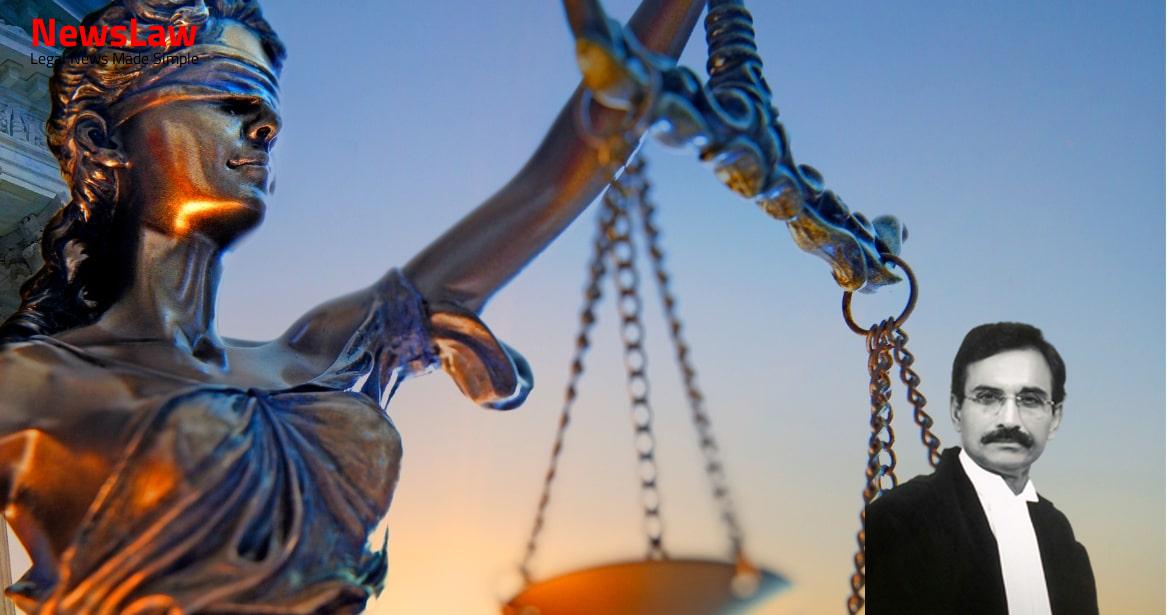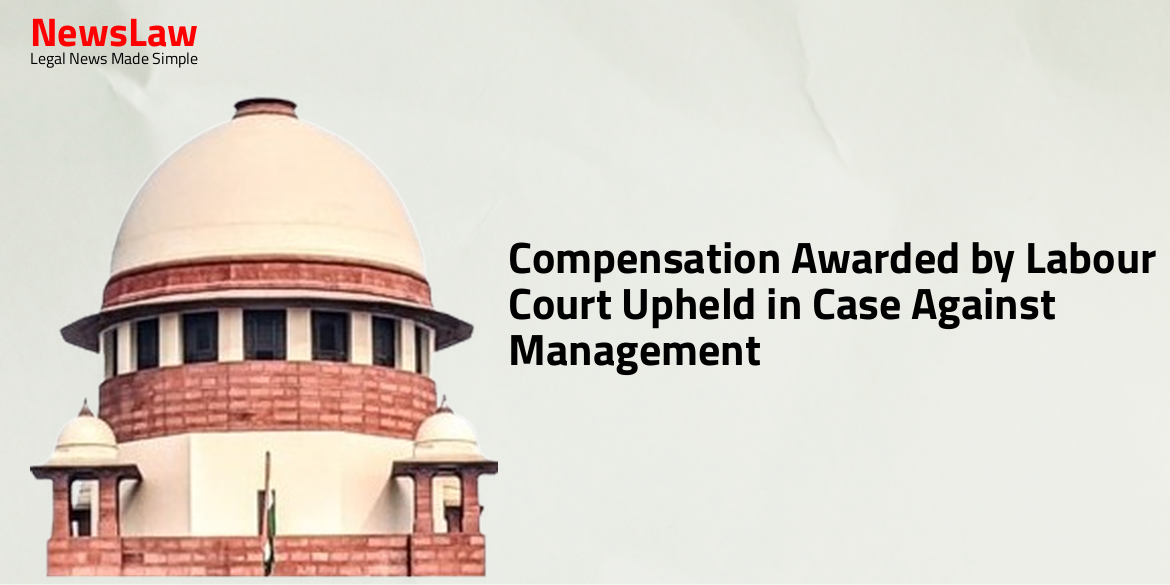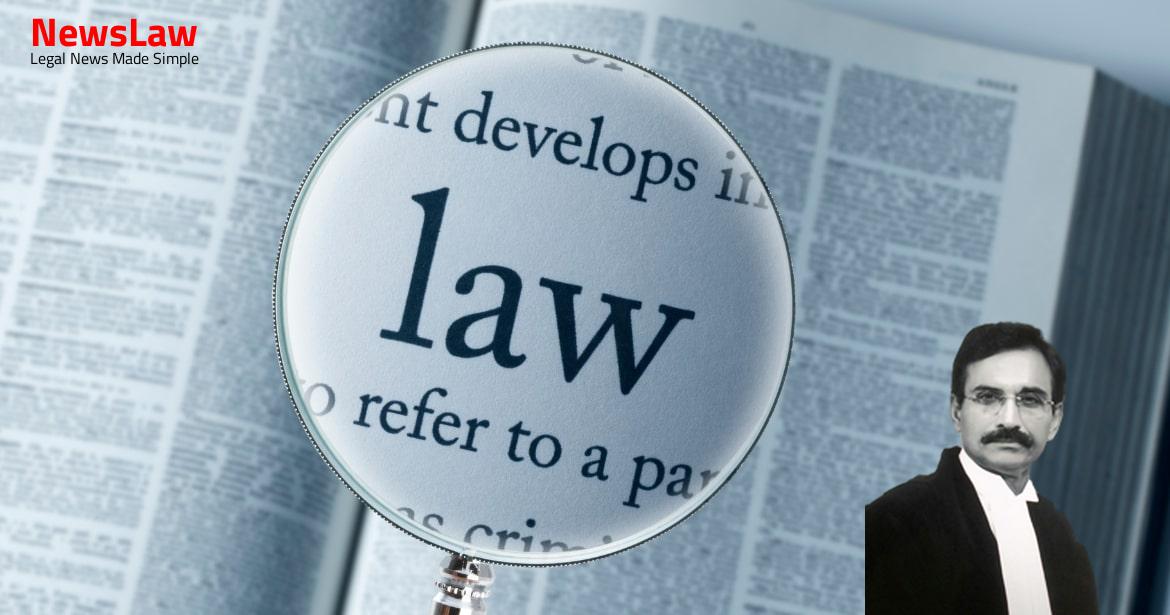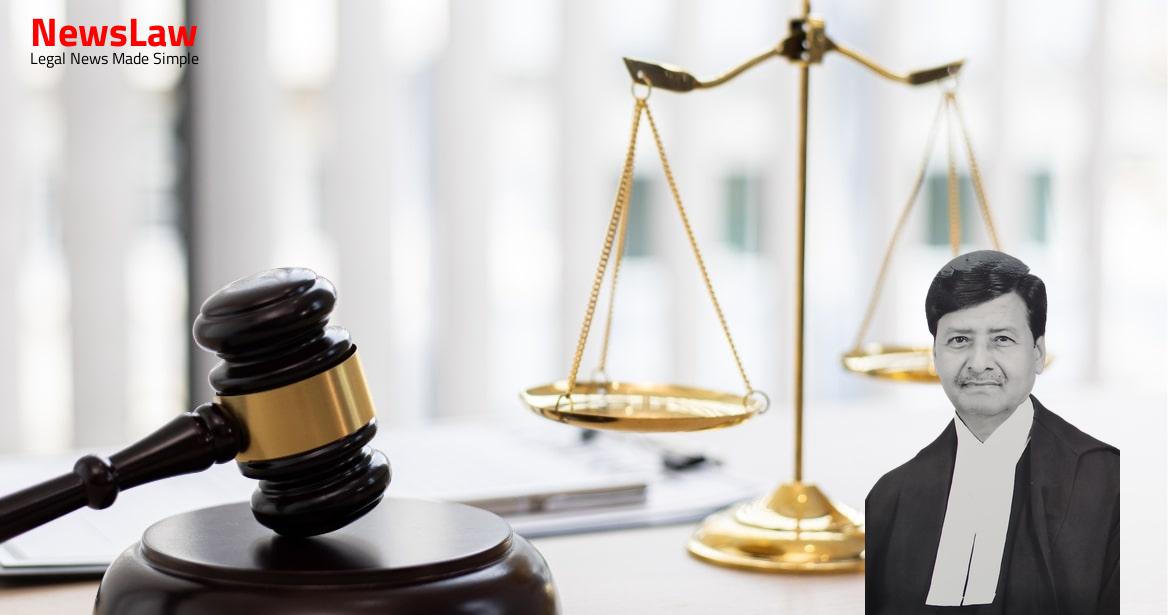The Constitution Bench’s nuanced legal analysis in a recent case delves into the complex issue of taxation of alcoholic liquors, distinguishing between those meant for human consumption and those not. The court’s interpretation of relevant legislative entries sheds light on the division of powers between State and Central Legislatures in levying excise duty, setting a clear framework for taxation. This case summary examines the critical legal distinctions and implications for the taxation of alcoholic liquors.
Facts
- Appellant No. 2, Commissioner of Excise, Orissa, granted a license to the respondent-Company for manufacturing IMFL from rectified spirit in 1990.
- Respondent-Company claimed their ENA column was the first of its kind in Orissa.
- A Technical Committee was formed to examine issues related to the manufacturing process and wastage of weak spirit.
- The Chemical Examiner found the weak spirit unfit for human consumption in a report.
- Multiple demand notices for excise duty were issued to the respondent-Company.
- Several writ petitions were filed by the respondent-Company in response to the demand notices.
- High Court directed the State to take a decision on the Committee’s report.
- Appellant No. 1 informed the respondent-Company of a 2% allowable process loss for re-distillation.
- More demand notices were issued, leading to additional writ petitions by the respondent-Company.
- Committee recommended allowing 2% loss during re-distillation in Orissa.
- High Court stayed the demand notices in response to a chemical examination of the weak spirit.
- The case involves challenges to demand notices and the allowance of process loss during re-distillation.
Also Read: Presumption of Genuine Endorsements in Cheque Case
Arguments
- Respondent’s counsel argues that the issue is no longer res integra.
- Refers to a previous Constitution Bench ruling that State Legislature cannot levy duty on industrial alcohol not fit for human consumption.
- Argues that there is no justification to overturn the High Court’s decision.
- The respondent-company is licensed for manufacturing, bottling, blending, and reducing IMFL.
- The company has a column installed to rectify rectified spirit for use in IMFL production.
Also Read: Medical Negligence and Compensation: A Landmark Decision
Analysis
- The Constitution Bench established a distinction between alcohol liquors for human consumption and those not for human consumption.
- The State Legislature is authorized to levy taxes on alcoholic liquors for human consumption under Entry 51 List II.
- Alcoholic liquors not for human consumption fall under the authority of the Central Legislature for levy of excise duty under Entry 84 List I.
- The State Legislature does not have the authority to levy duty or tax on alcohol not meant for human consumption, as this falls under the jurisdiction of the Centre.
- The language in Entries 51 and 84 in Lists I and II respectively clearly delineates the powers of taxation based on the use of alcoholic liquors.
- Alcoholic liquors are categorized into two heads by the Constitution makers: for human consumption and other than for human consumption.
- The analysis establishes the framework for taxation of alcoholic liquors by distinguishing between their intended use.
- Sample testing of Weak Spirit indicated it was unfit and unsafe for potable purposes due to failing limit tests for Acidity, Aldehydes, Fusel Oil, and Furfural.
- State seeks to levy excise duty on wastage of liquor before dilution and pipeline loss of liquor during manufacture, before dilution.
- Different State legislations on this issue came up before the Constitution Bench in Synthetics and Chemicals Ltd. case.
- Constitution Bench clarified that States can levy excise duty on raw material in the process of being made into alcoholic liquor for human consumption.
- State cannot levy excise duty on raw material or input still in process of being made fit for human consumption.
- State only empowered to levy excise duty on alcoholic liquor for human consumption, not on wastage after distillation.
- State government has the power to impose duty on import, export, transport, and manufacture of excisable articles as directed by the State
- Excisable article is defined as any alcoholic liquor for human consumption or any intoxicating drug
- The State can levy excise duty only on alcoholic liquor for human consumption according to the relevant statute
- Legal position settled by Constitution Bench in Synthetics and Chemicals Ltd. case and three Judge Bench in Modi Distillery case
- Statutory provisions in the Act provide no reason to interfere with impugned judgment and order
- Appeals found to be without merit and dismissed
Also Read: Remand of Writ Petition for Restoration and Decision on Merits
Decision
- All pending applications shall stand disposed of.
- There shall be no order as to costs.
Case Title: STATE OF ORISSA Vs. M/S UTKAL DISTILLERIES LTD. (2022 INSC 256)
Case Number: C.A. No.-005666-005668 / 2009



